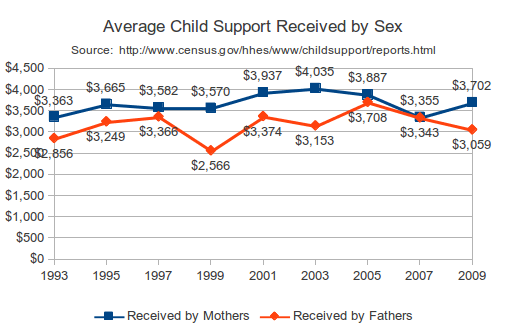INTERNATIONAL NORTH CAROLINA CHILD SUPPORT

DO I HAVE TO PAY SUPPORT TO A FOREIGN COUNTRY?
A CASE STUDY IN NORTH CAROLINA
DISCLAIMER: Do not try this at home. This analysis and explanation of the interaction between international law and North Carolina law is meant to provide guidance for the general public and to law practitioners. If you are not a licensed law practitioner, please read what follows as a matter of general interest or as a way of familiarizing yourself with some general outlines of the law. Please do not attempt, as a layperson, to use this as a guideline on how to handle an international / North Carolina support case yourself, without licensed legal counsel. There is no part of the following analysis that purports to be free-standing, irrefutable law, not subject to the vagaries of interpretation by an independent tribunal. Culbertson & Associates focuses in areas of International Law, including International Child Custody and International Child Support under the Hague Convention on the Recovery of International Child Support in the State of North Carolina. It is probably a better idea to call us or another specialist in this area and arrange an appointment than to use what follows as a self-help manual.
1. THE CASE BEGINS
The client of Culbertson & Associates, who I will call for reasons of confidentiality, Henry, came into our office with real concerns. He was understandably worried about his international child support order in North Carolina.
He was now a 10 year resident of North Carolina. He had met a woman called Nadia in New York City in 2005 where he worked as an executive with a large technology company, and Henry and she had married after just a few months. (*Please note: much of what follows is also applicable to a North Carolina resident who has either married or partnered a foreign spouse/partner abroad and then comes back to the United States.)
Nadia and Henry had a child a year following their New York marriage. Nadia had left after just a few months, going to the Czech Republic, stating that her mother was sick and needed her. Although she sent sporadic emails thereafter, she never returned to the United States with the child.
In 2011, Nadia, without notice to Henry, obtained a ruling from a foreign court in the ‘Czech Republic’ that Henry was obligated to pay ongoing child support for the child of the marriage plus arrearages in an amount over six figures in U.S. dollars.
In May 2013, the Czech Central Authority (as defined by Chapter 2, Article 4 of the Convention on the International Recovery of Child Support and Other Forms of Family Maintenance — “IRCS”) attempted to have the Czech order registered in Wake County, North Carolina under Articles 12, 16 and 20 of the IRCS. The Wake County Court declined to do so because it found that Henry did not have proper notice of the proceedings Under Article 22 IRCS and that there was a lack of personal jurisdiction in North Carolina child support court.

2. MORE THAN ONE WAY TO PROCEED
However, Nadia did not give up. She was intelligent and determined and she wanted support, in spite of the fact that Henry had been given no access to the child and was not even notified of the child’s whereabouts since she had left with the child in 2005. In May 2019, she caused the Czech Central Authority to send to, and file in, Lee County, North Carolina, an Application for Establishment of a Decision (application) under Article 10(1)(d) of the Hague Convention on the International Recovery of Child Support. This Article provides for an application for the establishment of a decision in the “requested” State (per Articles 6 and 7 of Hague Convention on the International Recovery of Child Support — in this case, North Carolina, where the “debtor” resides).

Article 10(1)(d) provides for an establishment of child support in the requested State where recognition and enforcement of a decision is not possible or is refused because of a lack of basis of recognition and enforcement under Article 20 or if there are grounds for refusal to recognize the State of origin’s order under Article 22, which is what happened in 2013 regarding Henry’s case.
3. POSSIBLE OUTCOMES UNDER THE HAGUE CONVENTION ON INTERNATIONAL CHILD SUPPORT
In Henry’s case, we researched the Hague Conventions on International Child Support carefully. Per Article 22(e), recognition of a foreign child support order may be refused in a case where the respondent had neither appeared nor was represented in proceedings in the State of origin and/or did not have proper notice of the proceedings and an opportunity to be heard.

Henry advised Culbertson & Associates that he had been served the paperwork by an anonymous process server in the State of North Carolina 50 days before. We carefully examined the documentation that had been “served” on him, and found that there was a cover letter from the Czech Central Authority attached to a larger series of pleadings which claimed that among the documents served were also documents tending to show that Henry was properly served with the Czech lawsuit which led to the foreign child support order which was being enforced in North Carolina. We then referred back to the Hague Convention on the International Recovery of Child Support and found that Article 25 very strictly required certain “Documents” for the application for recognition and enforcement under Articles 23 and 24 of the same Hague Convention.
Specifically, An application for recognition and enforcement of a foreign child support order . . . shall be accompanied by the following:
- a complete text of the decision
- a document stating that the decision is enforceable in the State of origin.
- if the respondent did not appear and was not represented in the proceedings in the State of origin, a document or documents attesting . . . either that the respondent had proper notice of the proceedings and an opportunity to be heard, or that the respondent had proper notice of the decision and the opportunity to challenge or appeal it on fact and law.
The Hague Convention on the Recovery of International Child Support then goes on to set forth the procedures for appealing such an order in the “requested” country.
Bearing in mind that the Constitutional law requirements of the United States contain very strong “Due Process” requirements regarding child support orders, and that the right of appeal in this country is also a constitutional requirement and is very strongly observed on these shores, we began to focus our initial strategy in these areas under the Hague Convention on the Recovery of International Child Support in the State of North Carolina.
Looking at the actual documents that were served on Henry, it became apparent that no documents tending to show that he had been properly served with the Czech lawsuits of 2011 and 2013 were in fact attached.
4. WHAT’S NEXT?
Culbertson & Associates then went back to the blueprint provided by the Hague Convention on the Recovery of International Child Support. The application in Henry’s case sought to have the North Carolina court set child support in the amount of $1,200 per month, retroactive to January 5, 2006. This amounts to a staggering sum of “arrears” (the amount of past due and unpaid international child support).

Bearing in mind the appeal rights are set forth in Article 25(2) and Article 23(7)(c), we looked at our time limits for challenging the latest attempt by Nadia to enforce the foreign child support order in North Carolina.
Unfortunately, Henry hadn’t actually made his appointment to see us until two months following service of the documents upon him. So, the appeal deadlines enumerated in the Hague Convention on the Recovery of International Child Support had been missed.
5. INTERNATIONAL ENFORCEMENT OF CHILD
NORTH CAROLINA LAW
We at Culbertson & Associates then began to research North Carolina law on the maximum period to which an International Child Support order might apply.
Per North Carolina General Statute 1-52(2) and case law cited in Lee, North Carolina Family Law, child support cannot be set retroactively any further back than three years prior to the filing of the Complaint for Child Support. The application for International Child Support in Henry’s case, as noted, was not filed until May 31, 2019, in the most recent iteration, which would mean that the court cannot go back any further than May 321, 2016 in setting retroactive child support.
Further, retroactive child support in both North Carolina and in North Carolina’s enforcement of International Child Support Orders can be set by two standards: the amounts that were actually expended on the child’s behalf or the amount set forth in the North Carolina Child Support Guidelines.
Is this the Best Way to Defend Against an International Child Support Order?
We at Culbertson & Associates thought we had found the answer. Not so fast. Careful international lawyers will always cross-reference the applicable international law repeatedly. So, we then went back to the Hague Convention on the Recovery of International Child Support. Towards the end of that long Convention, Article 32(5) provides as follows:
Any limitation on the period for which arrears may be enforced shall be determined either by the law of the State of origin of the decision or by the law of the State addressed, whichever provides for the longer limitation period.”
Thus, it looked as if the three years North Carolina limitation on child support arrearages might be in serious jeopardy. Who knows what the Czech limitation is?
CULBERTSON & ASSOCIATES FOR INTERNATIONAL CHILD SUPPORT CASES
At Culbertson & Associates, it is our job to know. We find these things out. Stay tuned to the answer to Henry’s case and whether North Carolina Child Support Law trumps the law of the Czech Republic as set forth in the Hague Convention on the Recovery of International Child Support.
Culbertson & Associates
315 Spring Garden St., Suite 300
Greensboro, NC 27401
Office: (336) 272-4299
Fax: (336) 272-2688
